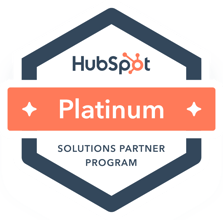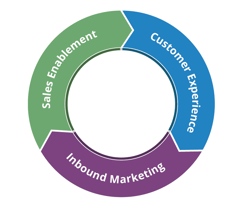Are you having issues getting your site to rank organically in search engines? This is a common challenge faced by many website owners and marketers eager to increase their online visibility and attract more visitors. As a website owner and marketer, you must first understand that spending money won't always get you great Google rankings. While paid advertising can provide a temporary boost, it does not guarantee long-term success in organic search results. You also need to have a strategy and a bit of patience to see results because organic search compounds over time. This means that the efforts you put into optimizing your site today will gradually build up and yield more significant benefits in the future. You can use many tips to improve your search ranking, but if you employ the following five organic search tips, you will see an improvement in your search results. These tips are designed to enhance your website's performance and ensure that it meets the criteria set by search engines, ultimately leading to better visibility and higher rankings.
1. Improve the User Experience
Research conducted by SEMrush found that four major factors determine your website’s ranking. They include:
- Website Visits: How many people are visiting your website?
- Pages Per Session: How many pages people read when they are on your website tells Google and the other search engines how much quality and helpful content you have on your site.
- Time on Site: How long someone is on your site also tells Google and the other search engines how much quality and helpful content you have on your site because people tend to stay on sites longer when finding valuable content.
- Bounce Rate: The lower, the better! Bounce rate refers to how many people come to your site and only stay on that first page. This means that the content they saw may not have been very valuable. Keep updating your site with helpful content to keep your website visitors engaged.
All these factors are directly linked to the user’s experience. If your website is easy to navigate and offers helpful information, there will be higher traffic. As a result, people will stay on your site longer and view more pages, thus improving your search rank. The best way to improve user experience is to have great content and website design.
2. Design Websites for Mobile-First
Google gives more credence to mobile versions of websites than desktop versions. Their mobile-first index focused on the increasing number of smartphone searches. This is why it is essential to design websites that are first compatible with mobile phones. This does not mean having a separate mobile website; your existing website design and structure should be responsive. By designing SEO-friendly mobile websites with searches optimized for mobile-first, website owners can improve their Google ranking and minimize bounce rates.
3. Get More Backlinks
Backlinks are links from other websites to yours. Backlinks significantly impact the ranking of a search engine’s site. It is even better if the website you put your link on has a lot of traffic. The best way to get backlinks is by writing contributing articles. This way, you get to share your opinion about happenings in your industry on other website blogs in exchange for a link to your site. By having backlinks from respectable domains, you can show Google that your site has some influence, which will be reflected in your search ranking.
4. Use H1 and H2 Header Tags
Headers make your content easier for humans and search engines to understand. Also, there is a link between Google search rank and the use of header tags in your content. Using header tags makes your design easier for the user to consume your content easily. Consider it a way to format your content for the user experience, while also telling Google and the other search engines what the purpose of that particular page's content.
5. Write Long-Form Content
The longer your content is, the higher the possibility of getting higher Google search rankings. Create well-informed blog posts covering every aspect of subjects relevant to your target audience. According to HubSpot, the ideal blog post length is roughly 2,100 words, which will vary depending on your topic. Medium, a website dedicated to publishing and hosting compelling content, found that posts that took seven minutes to read earned the most engagement and attention. According to serpIQ, most of the top 10 Google results are between 2,032 and 2,416 words.
Here are a few other organic search tips that would be useful in improving your search ranking:
- Fix any broken links
- Improve your page speed
- Optimize your images
- Use descriptive URLs
- Use Alt Tags
As you can see, a lot goes into improving your organic search results. It requires a comprehensive approach that involves multiple strategies and ongoing effort. It takes time and is not just a one-time project you can set and forget. Instead, it demands continuous attention and adaptation to the ever-evolving landscape of search engine algorithms and user behavior. Organic search and compelling content must be a consistent part of your marketing and business strategy, supporting your brand's visibility and credibility. By regularly updating your content, optimizing your website, and staying informed about the latest SEO trends, you can ensure that your site remains competitive and continues to attract and engage your target audience effectively.
If you're interested in discussing your current marketing strategy and how you can start to improve your search results, we invite you to schedule an inbound marketing consultation with our team. If you want to see how your website's SEO results compare to your competition, get your free SEO report card.


.png?width=80&height=80&name=diamond-badge-color%20(1).png)





.png?width=250&name=diamond-badge-color%20(1).png)
